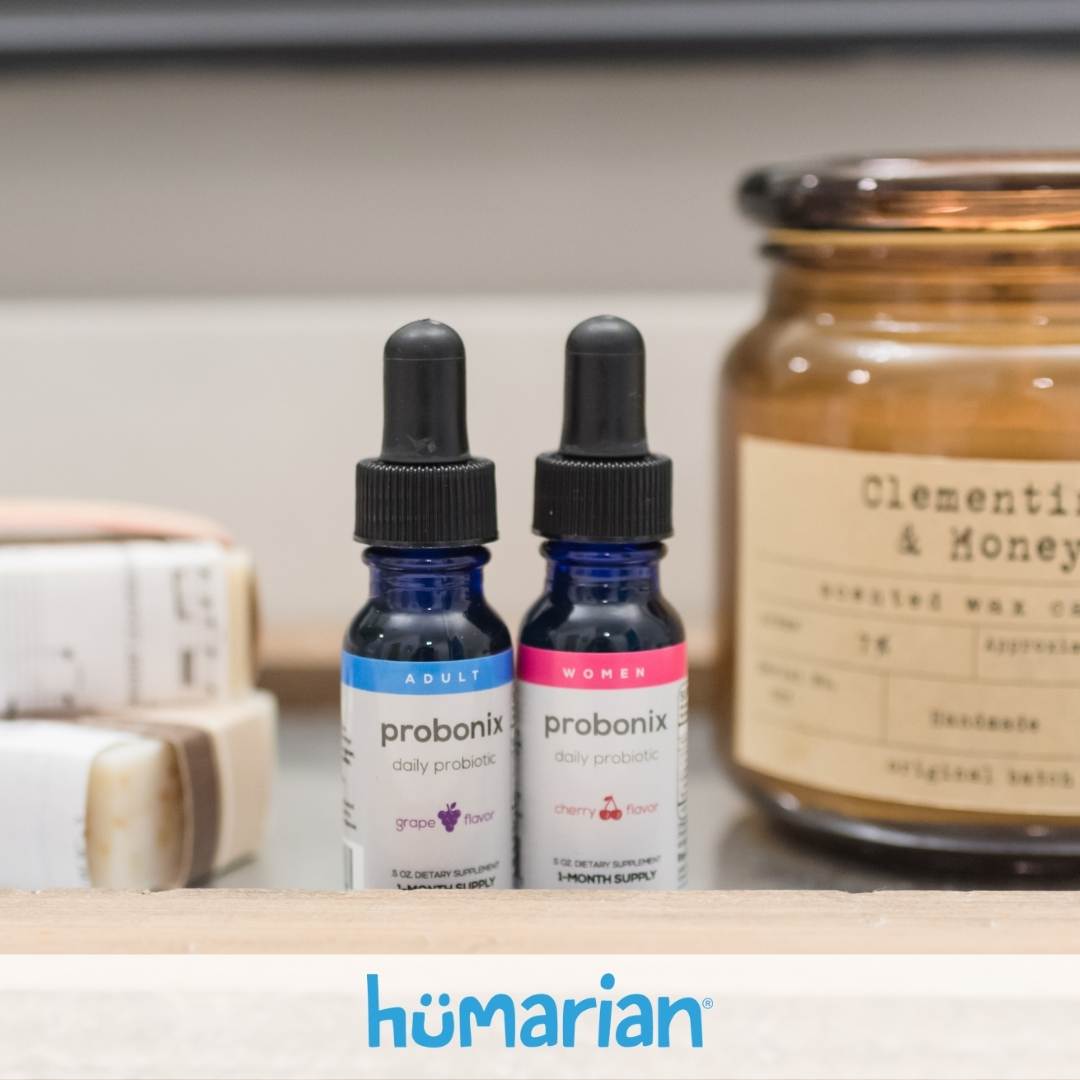Seasonal Allergies: Can Probiotics Help?
With spring comes picnics, beautiful hikes and, unfortunately, seasonal allergies. To combat allergies, many people turn to antihistamines and decongestants that leave them feeling tired and dehydrated. If you’d like to overcome seasonal allergy symptoms without those side effects, probiotics can offer a holistic solution.
Probiotics are known for promoting gut health, but recent research has found that they can also ease symptoms of seasonal allergies. Let’s examine some of these studies and how a digestive system full of healthy bacteria can ease many symptoms of seasonal allergies.
What Causes Seasonal Allergies?
To understand how probiotics ease the symptoms of seasonal allergies, it’s important to know how the body reacts to allergens.
When trees, grasses, weeds, and flowers blossom, they produce pollen to fertilize other plants. While pollen itself isn’t harmful, many of our immune systems defenses it as a threat. In a desperate attempt to defend the body, the immune system tries to get rid of pollen with coughing, sneezing, and other symptoms.
Allergy Relief From Gut Health
In a recent post, we detailed how probiotics help fight against flu. To sum it up, this is because 60 to 70 percent of the immune system is found in the digestive system. Ingesting probiotics rich
in lactobacilli promotes nutrient absorption and shields the body against flu-causing bacteria. Through this same mechanism, probiotics can also help fend off the effects of seasonal allergies.
However, it’s important to note that probiotics offer relief from allergy symptoms instead of actual treatment. They don’t cure the common cold or seasonal allergies, but they may ease symptoms such as:
- Sneezing
- Coughing
- Congestion
- Itchy eyes
- Runny nose
- Postnasal drip
These symptoms ruin otherwise wonderful spring, summer, and fall days. With the right probiotic combination, though, you may find relief without going through a whole bottle of antihistamines.
Which Probiotics Help Ease Seasonal Allergies?

A recent study conducted by the University of Florida indicates that a combination of two probiotics is the most effective against seasonal allergy symptoms.
The first is lactobacilli, the same probiotic effective in treating flu symptoms. This probiotic can alter the number of antibodies present in the immune system. As defense proteins, antibodies latch on to foreign invaders in the body and render them inactive.
Another good bacteria called bifidobacteria help during peak allergy season. Some kinds of these bacteria recruit white blood cells to fend off attackers. They can also help the body absorb more nutrients, reduce inflammation and carry out its regular functions.
With these traits, the helpful effects of probiotics extend beyond the digestive tract and into your immune system. Backed by a robust culture of helpful bacteria, the immune system has more resources to fend off many symptoms of seasonal allergies.
Probiotic Case Studies
Research into probiotics’ roles in easing seasonal allergy symptoms is varied and at times confusing. In general, scientists haven’t come to a definite conclusion about how or why probiotics ease seasonal allergy symptoms, but certain studies indicate that they work.
To clear up some of this confusion, researchers at Vanderbilt University Medical Center analyzed 23 studies about probiotics and allergies. Altogether, these studies involved almost 2,000 people. An astounding 17 of those studies found that probiotics eased seasonal allergy symptoms. Only six found no connection. Why might these studies yield different results?
According to researchers, the division comes from different approaches. Most studies used different strains and combinations of probiotics, making it difficult to compare results and come to conclusive answers. However, at least one very rigorous study points to probiotics being effective against seasonal allergies.
Through a randomized, double-blind study, researchers administered strains of bifidobacteria and placebos to 40 children over a four-week period. Children that received the probiotic saw “a significant improvement of symptoms” while children that were given a placebo had progressively worsening allergy symptoms. This may be only one study in a sea of many, but the results are promising.
What Seasonal Allergies Can Probiotics Treat?
That study, in particular, shows that probiotics are effective in treating symptoms of allergic rhinitis, also known as hay fever. People suffering from hay fever react to three main allergens in the spring, summer, and fall:
- Airborne molds
- Spores
- Pollen
If you’re prone to sneezing fits at certain times of the year, probiotics may help you find relief.
Where Can I Find Probiotics To Help With Seasonal Allergies?
Now that we’ve established the what, why, and how of seasonal allergy relief, let’s move to the where. The best sources of allergy-combating probiotics are fermented food, drinks, and dairy products.
 If probiotic-rich foods are a big part of your diet, you may already be ingesting lactobacilli, one of the probiotics that can help with seasonal allergies. Lactobacilli strains are commonly found in:
If probiotic-rich foods are a big part of your diet, you may already be ingesting lactobacilli, one of the probiotics that can help with seasonal allergies. Lactobacilli strains are commonly found in:
- Yogurt
- Sourdough bread
- Kimchi
- Sauerkraut
- Kefir, a fermented drink made of grains and milk
Those foods also contain bifidobacteria, the other probiotic that eases seasonal allergy symptoms. Because bifidobacteria break down fiber, eating a high-fiber diet allows them to thrive. To promote their growth, eat:
- Apples
- Berries
- Artichokes
- Nuts including almonds and pistachios
You can further increase the effectiveness of probiotics by eating foods rich in prebiotics, plant fibers that help probiotics grow. Garlic, onions, and bananas are great sources of prebiotics.
Taking a probiotic may be in your best interest if you are suffering from seasonal allergies and want a quick and effective solution.
Probonix for Adults contains 7 different kinds of lactobacilli and 3 different kinds of bifidobacteria. All of our other varieties of Probonix have at least three of each.
How Can I Supplement My Diet To Help Seasonal Allergies?
Because of dietary restrictions, allergies, cost, and availability, eating probiotic-rich foods isn’t always practical. In that case, consider adding a daily probiotic supplement to your routine.
At Humarian, our Probonix probiotic supplements are organic, all-natural, and GMO-free, meaning they fit into a wide range of diets. If you lead a busy lifestyle, a liquid or capsule probiotic supplement is a convenient way to safeguard yourself against seasonal allergies and promote gut health.
